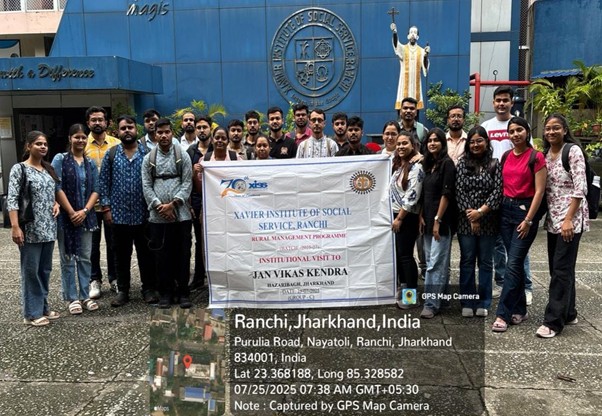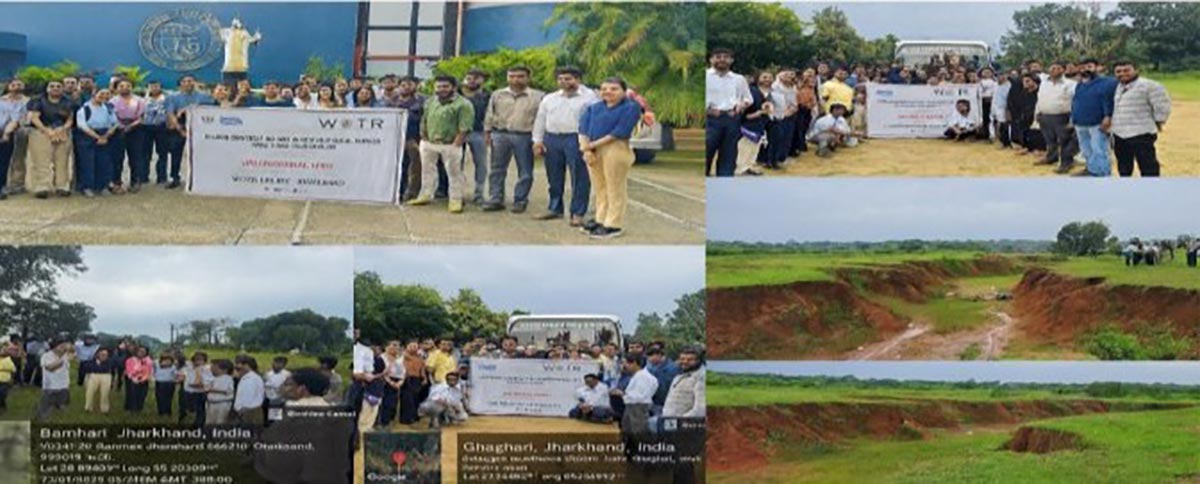First Institutional Visit organized for Rural Management Students of Batch 2025-27

Institutional Visits (IVs) are an integral component of the Rural Management Programme. The first IV for the first-year students (Batch 2025–27) was organized on 25 July 2025 to provide a broader knowledge of development interventions and field-based practices across various sectors. The class of seventy-six students was divided into three groups that visited different intervention areas.
A team led by Dr Sourya Das, Assistant Professor, visited the Bamni Watershed in the Murhu block of Khunti district. The Bamni watershed project has been implemented by the Watershed Organisation Trust (WOTR). Members of the WOTR-Jharkhand team guided the students through various watershed structures, from ridge to valley. Additionally, the WOTR team demonstrated the Agro-Met Advisory Service installed in the Bamni watershed. Students also interacted with community members to learn about the impact of watershed management on rural life.
Another team, led by Dr K. Kusumavathi, Assistant Professor, visited AROUSE Organization in Gumla, Jharkhand, to provide students with practical exposure to grassroots development initiatives. During the visit, students were briefed on the organization’s mission, vision, and community-centric interventions, particularly in the areas of sustainable agriculture and tribal empowerment. They also visited a tribal museum showcasing traditional tools, clothing, wooden crafts, and ritual items, reflecting the rich tribal heritage of the region.

During the field visit, students observed practices such as multi-layer farming, organic farming techniques, and the System of Rice Intensification (SRI) method of paddy cultivation. They also actively participated in rice transplanting, gaining hands-on experience of SRI techniques.
The third group, led by Dr Pramil Kumar Panda, Assistant Professor, visited Jan Vikas Kendra, Hazaribagh. The visit aimed to provide hands-on learning about grassroots development work. During the visit, students observed several rural development initiatives, including water conservation through ponds and check dams, organic farming practices such as lac cultivation and SRI in paddy farming, and women’s empowerment through self-help groups. They also interacted with farmer groups to understand the impact of these interventions. The visit was supported by Fr Prabal Khalkho and the Jan Vikas Kendra team.
The students appreciated the field insights, which enriched their understanding of development work in rural Jharkhand. All three visits were highly informative and provided valuable learning experiences aligned with the objectives of the Rural Management Programme.






